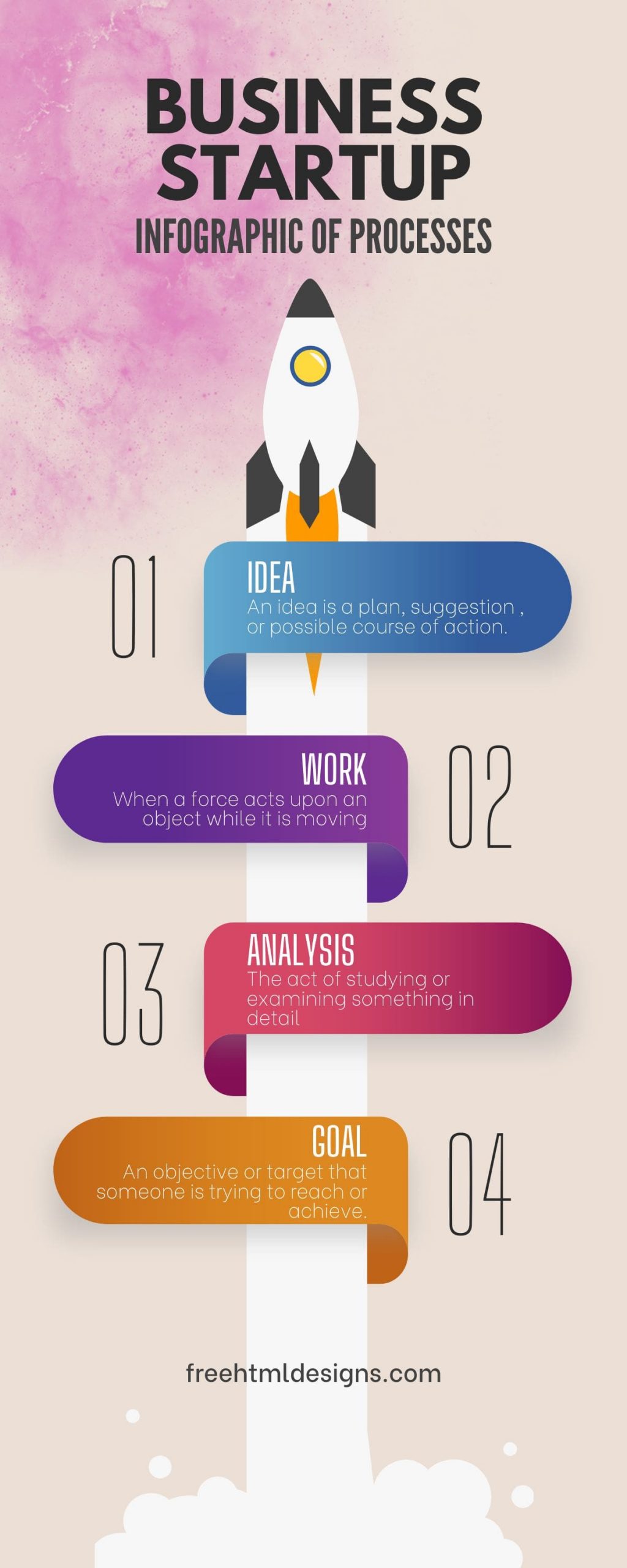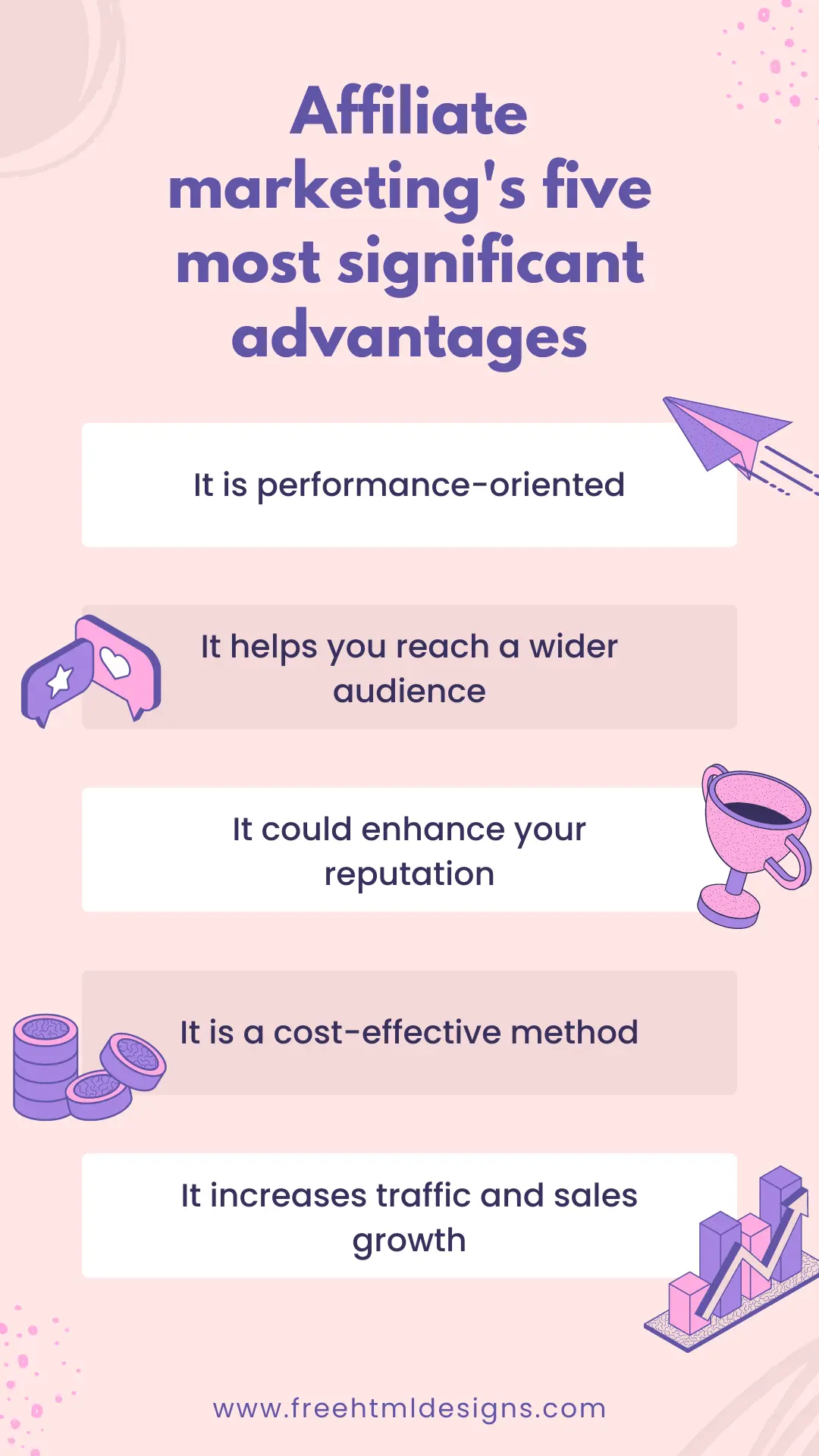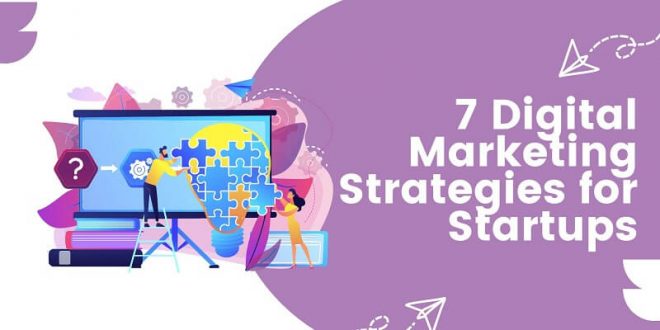Digital marketing is the promotion of brands to connect with potential clients using the internet and electronic devices. This can take many forms including search engine marketing, affiliate marketing, and content marketing. When it comes to startups, entrepreneurship is not a journey for the faint-hearted. That’s considering that everything seems to be against you and your only goal becomes survival. Yet, that survival is supposed to occur simultaneously with your business growth. All this could be happening at a time when you are under financial constraints. But if you’re able to find success under such conditions, your business can survive anything. The good news is that through digital marketing strategies for startups, the internet has streamlined the process of starting and growing a business.
Having a clear understanding of your buyer persona enables you to create plans that appeal to them. You can speak in a language they understand and build products that meet their needs. You’ll also know how to find them as buyer persona will point you in the right direction.

What Digital Marketing Strategies Can Startups Adopt?
The most effective way of growing a startup is to follow a solid digital marketing strategy. Building a startup is challenging, especially, if you don’t have a plan in place. You can end up wasting a lot of time and other resources on the wrong activities. If you are a beginner then you can enroll in a digital marketing course to enhance your knowledge.
That’s the reason why we’ve decided to share some digital marketing strategies for startups on the right path.
1. Content Marketing
It’s impossible to talk about digital marketing for startups and not mention content marketing as a strategy.
Content marketing entails the creation and sharing of valuable, informative, and consistent content. You can do this through blogs, videos, and other mediums. This will help users to become more familiar with your brand and what you stand for.
Here are some strategies that startups can use to improve their content marketing approach:
Backing up your content with data will serve to interest your readers.
Note that data is as crucial as spell-checking is. So make your point and back it up with data facts.
Consistency is important.
This means that you must post high-quality content on a regular basis. Two-high quality blog posts per week, for instance, are better than 5 bad ones.
You must assess the content before distribution.
Keep in mind that it’s not just about likes, views, and viewing your material. You need to integrate analytical tools like Google Analytics to know why people are looking at your material. They may be reading it because of the kind of information you give, the outcome of backlinking, or something else.
If your business needs help with direction and the implementation of content marketing for startups, you can seek the services of content marketing firms. Remember that mastering content marketing can take time. Also, acquiring the necessary software to track a content strategy can get expensive.
You may need to partner with a content marketing firm to reduce costs and the time you’d have wasted learning how to implement it. The content supplied by content marketing agencies is created with the readers in mind. Not only that but it’s also created with search engine optimization techniques.
Keywords and phrases are also incorporated to ensure accessibility on search engines. Content marketing agencies understand the most up-to-date SEO techniques that will help to increase exposure and your bottom line.
2. Influencer Marketing
We live in a digital age where many of us trust the opinion of popular personalities that we follow on social media. Thus, if you get an influencer to talk about your products, their fans are likely to become your clients.
Beats by Dre, for instance, gained popularity by leveraging popular musicians as influencers. They would do the marketing by having the headphones featured in music videos. Within a short time, everyone wanted a pair of headphones even though they were more expensive compared to what competitors had.
A lot of influencers would be happy to review your products if you gave them free samples. Some will want you to pay for the marketing. But it’s important that you work with influencers whose following is made up of people who will see the value in what you offer.
Find tech influencers if you are in the tech sector. It doesn’t make sense for you to team up with a fashion influencer and recommend your computer software to their fans who are enthusiastic about fashion.
3. Affiliate Marketing
This digital marketing strategy can be treated as a sibling of influencer marketing. That’s because it also relies on the influence of people to bring in sales. That’s the reason why you should consider integrating it with your influencer marketing.
With affiliate marketing, you just sit back and relax as other people do the marketing for you. This is a rather simplified way of putting it as we don’t recommend the sitting back part. That should never be your strategy if you intend to grow your business.
Affiliate marketing is where you recruit affiliates for your brand to help you draw in leads. To truly understand and leverage this strategy, diving into affiliate literature can provide you with insights and nuances of maneuvering through its complexities. These affiliates can be thought of as salespeople who work on a commission basis.
The best way of recruiting affiliates would be to use affiliate recruiting software. The software will help by automating most of the manual work involved in finding and recruiting affiliates that are relevant to your brand.
But how can organizations keep track of their sales? You can do so through customized affiliate links provided to affiliates. The affiliates can share the links with their social media circles that can, in turn, use the links to visit your website and make purchases. Tools like Google Analytics can also help you in generating these customized links.

4. Cross Promotion
This is a digital marketing strategy where two or more startups are in the same industry but are not direct competitors. These business people can agree to refer each other to their respective audiences.
If, for instance, you deal with football equipment, you can partner with tournament organizers. In return, you will promote them on your social media pages and blogs. Based on the agreement, they’ll reciprocate by promoting you on their online platforms.
This is a win-win strategy and does not involve money, nor does it involve extensive labor. It’s easier to target brands that are in a similar position as yours because they’ll most likely be interested in the proposal.
5. Reach Out to the Users of Competing Products
This marketing strategy is a very direct approach and works like magic. Remember that one of the challenges startups face is getting clients when they don’t have any credibility.
To win over your first set of buyers and get the ball rolling in your business, approach the users of a competing product and introduce your product to them.
You’ll easily find these consumers commenting on a competitor’s social media page and writing reviews. Specifically, target those who write negative reviews and recommend your products as the best solution.
6. Get an Optimized Website
85 percent of consumers search for products and services online but despite that, some businesses still operate without a website.
Websites are the starting point of any internet domination strategy. It’s the central hub where consumers can learn about your startup. It’s also the platform through which investors and possible partners can reach you. So having it is crucial for your digital marketing plan.
Your website must be a digital representation of your brand. It must follow the same theme and tone of voice as what you offer. Its user experience must also be superior to your competitor’s sites.
User experience is about how well-designed your site is and how easy it is to navigate. Websites with a positive user experience get rewarded with a high ranking on Google, leading to more traffic. Note that user experience is just as important as search engine optimization.
7. Search Engine Optimization
SEO is the process of increasing a website’s authority and ranking on search engines. It’s one of the popular and best digital marketing strategies for organic growth.
A lot of users on the internet only visit websites that they’ve seen on the first page of search engine results. Thus, you must aim at getting your site to rank among the top results for the phrases related to your business.
Although SEO can be a long and painstaking process, it eventually eliminates the need to spend on pay-per-click ads once you start getting organic traffic.
SEO has two main parts, with the first one being on-site SEO. This involves optimizing individual pages on the site to make them user-friendly and search engine friendly.
The second part is off-site SEO, which involves link building. Each time another site links to your site, Google considers it a referral. This is a sign of authority and authoritative sites get rewarded with a higher ranking. That’s because they are more likely to contain valuable information.
Conclusion
Digital marketing can make or break a startup if not carried out strategically and with your business objectives in mind. That’s the reason why you need to pay great attention to it.
What’s even more challenging is to develop a marketing strategy that will let you stay ahead of the competition. You should consider the digital marketing strategies for startups discussed here to get started on a successful journey.
 free html design Free html design templates
free html design Free html design templates






